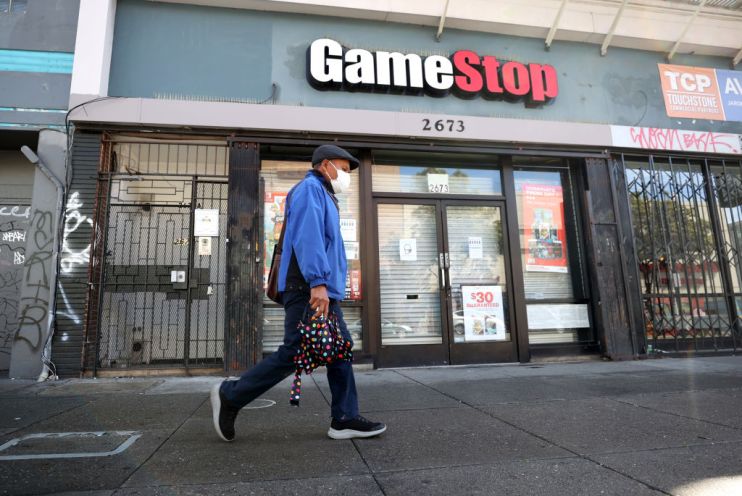Could we see a meme stock repeat?

For the retail investors at the heart of it, the so-called meme stock surge last January was a case of David vs Goliath.
A ragtag bunch of amateur investors, feverishly coordinating on online forums, piled into ailing stocks like GameStop and sent share prices soaring.
It sent shockwaves through the financial system and brought hedge behemoths to their knees as their short positions took a pummelling.
To the investors, it looked and felt very much like a revolution.
But a year on and retail investment has, to an extent, settled and adapted; some safeguards have been put in place, the humbled hedge funds have lived on.
So what has changed? And could a meme stock surge happen again?
Robinhood the retail trading app at the heart of the Memestock surge last year, clamped down at the height of the trading frenzy to uproar from retail investors, who accused it of taking the side of the institutions.
It released a blog this week reflecting on the various measures it has put in place since the “extraordinary” market activity”, including strengthening compliance and risk, doubling down on financial literacy resources and helping people learn the basics of investing.
But Lee Wild, head of equity strategy at retail trading platform Interactive Investor, says the appetite is still there.
“Gamestop captured the imagination of investors who were prepared to take greater risk in the pursuit of potentially significant profits. Many Gamestoppers also own Tesla, so have experience of both identifying and owning spicier stocks”.
With appetite still simmering among investors, financial institutions are now casting a vigilant eye across retail investment trend to spot the surges at source before they mutate into something more dangerous.
Vanda, a trading data firm, last year launched a proprietary data set tracking US retail investment and has seen demand surge from institutional clients.
“If you’re looking at US equities now, you have to have a retail outlook,” says Angus Hume, CEO of Vanda.
Retail investors, he says, are now dictating market trends.
“They are acting like a commodity trading advisor – every major rotation in the market has been sponsored and driven by retail investors.”
Tellingly, Vanda has also now launched a chatter data tool for institutional clients to track conversation and sentiment across social media platforms like Reddit and Twitter.
JP Morgan too has reportedly rolled out a “Through the retail lens” tool to help hedge funds spot the next surge.
The tool launched in September and is being used by about 30 asset and quant fund managers, Bloomberg reported, giving a view of retail flows and combing through Reddit and Twitter to determine retail traders’ sentiment on a stock.
In the US, the Securities and Exchange Commission is looking to put rails in place and prevent the worst impact of another retail revolution.
The safeguards have for the time being fought off a retail revolution. But only time will tell where the next will come from,